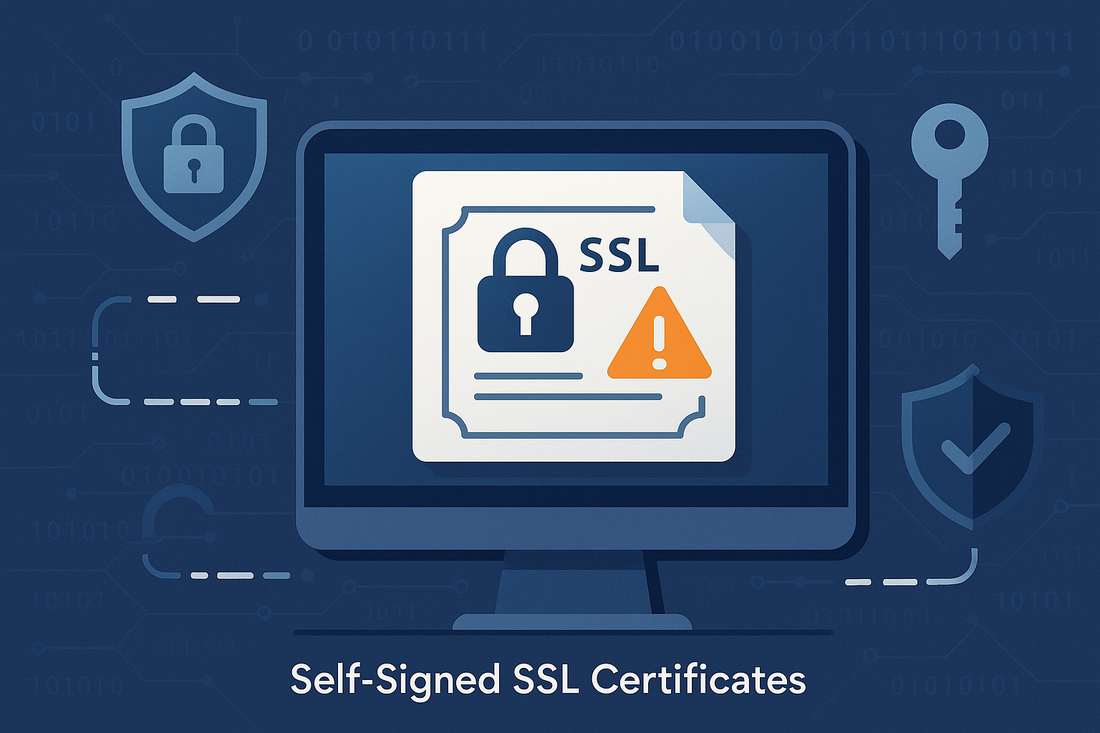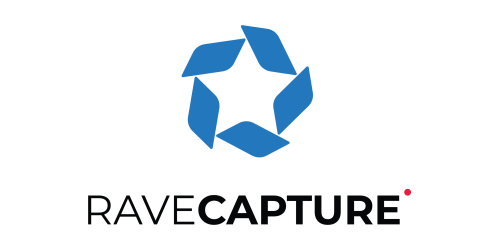
Self-Signed SSL Certificates : Security Risks and Benefits
James RodriguezShare
Self-signed SSL Certificates, while technically possible to create, lack the security validation and browser trust that comes with professionally issued Trustico® SSL Certificates.
As a leading SSL Certificate provider, Trustico® strongly recommends using properly validated SSL Certificates from trusted Certificate Authorities for any business or production environment.
Understanding Self-Signed SSL Certificates
A self-signed SSL Certificate is created and signed by the same entity that uses it, rather than being issued by a trusted Certificate Authority (CA).
While they can provide basic encryption, self-signed SSL Certificates trigger security warnings in web browsers and offer none of the validation benefits that come with Trustico® SSL Certificates.
The main limitation of self-signed SSL Certificates is their complete lack of third-party validation. Without proper validation from a trusted Certificate Authority (CA), browsers cannot verify the legitimacy of your website or organization.
This results in prominent security warnings that can drive visitors away and damage your reputation.
The technical process of creating self-signed SSL Certificates involves generating your own public and private key pair, then using the private key to sign the public key and associated information.
This differs fundamentally from Trustico® SSL Certificates, which are signed by trusted root Certificate Authorities (CA) that browsers inherently recognize.
Modern browsers display increasingly alarming warnings when encountering self-signed SSL Certificates. These warnings typically feature red text, crossed-out padlock icons, and security messages that require users to click through multiple screens acknowledging the risk.
Such barriers significantly impact user experience and trust in your website.
Security Risks of Self-Signed SSL Certificates
Self-signed SSL Certificates create significant security vulnerabilities that professional Trustico® SSL Certificates avoid. The most critical issue is the inability to verify the authenticity of the website, making users vulnerable to man-in-the-middle attacks where attackers could present their own self-signed SSL Certificates.
SSL Certificate revocation is another major security concern with self-signed SSL Certificates. Unlike Trustico® SSL Certificates, which can be revoked through established Certificate Authority (CA) infrastructure if compromised, self-signed SSL Certificates have no revocation mechanism.
This means compromised self-signed SSL Certificates cannot be invalidated.
Trust chain validation, a fundamental security feature of properly issued SSL Certificates, is entirely absent with self-signed options. Trustico® SSL Certificates are part of a hierarchical trust model where each SSL Certificate is validated up to a trusted root.
Self-signed SSL Certificates exist in isolation without this critical security structure.
Security updates and industry compliance are ongoing concerns with self-signed SSL Certificates. As security standards evolve, Certificate Authorities (CA) update their issuance practices and SSL Certificate features.
Self-signed SSL Certificates remain static unless manually regenerated, potentially falling behind current security requirements.
Limited Use Cases for Self-Signed SSL Certificates
While Trustico® recommends professionally issued SSL Certificates for all production environments, there are limited scenarios where self-signed SSL Certificates might be temporarily acceptable.
Development and testing environments that are not accessible to the public may use self-signed SSL Certificates during initial setup phases.
Internal networks with controlled access sometimes employ self-signed SSL Certificates for non-critical applications. However, even in these scenarios, internal Certificate Authorities or professionally issued SSL Certificates from Trustico® provide superior security and manageability for enterprise environments.
Personal projects with no sensitive data or public access represent another potential use case for self-signed SSL Certificates. Yet as Trustico® offers affordable Domain Validation (DV) SSL Certificates, the minimal cost difference rarely justifies accepting the limitations of self-signed alternatives.
Temporary emergency deployments occasionally use self-signed SSL Certificates as an interim measure. However, Trustico® rapid issuance services can provide properly validated SSL Certificates quickly, making even this use case increasingly unnecessary.
Why Choose Trustico® SSL Certificates Instead
Trustico® offers a comprehensive range of properly validated SSL Certificates that provide the security and trust your website needs. Our SSL Certificates are backed by leading Certificate Authority (CA) Sectigo® and come with full browser trust, eliminating security warnings that self-signed SSL Certificates trigger.
Whether you need Domain Validation (DV), Organization Validation (OV), or Extended Validation (EV) SSL Certificates, Trustico® has the right solution for your security needs.
Our SSL Certificates provide industry-standard encryption strength while establishing verified identity and legitimacy for your website.
Browser compatibility represents a significant advantage of Trustico® SSL Certificates over self-signed alternatives.
Our SSL Certificates are recognized by all major browsers without warnings or errors, ensuring a seamless user experience across Chrome, Firefox, Safari, Edge, and mobile browsers.
Search engine optimization benefits significantly from properly validated SSL Certificates. Google and other search engines prioritize secure websites in their rankings and may penalize sites with security warnings.
Self-signed SSL Certificates can negatively impact your search visibility, while Trustico® SSL Certificates contribute to improved rankings.
Professional SSL Certificate Benefits
Trustico® SSL Certificates offer numerous advantages over self-signed alternatives. These include quick validation and issuance, compatibility across all major browsers and platforms, and dedicated customer support from our SSL Certificate experts.
Our SSL Certificates also include valuable features like unlimited server licensing, free reissuance, and warranties up to $1.75M. With both Trustico® and Sectigo® branded options available, we provide flexible solutions to meet any organization requirements.
Certificate Transparency (CT) logging represents an important security feature included with Trustico® SSL Certificates. This system creates a public, verifiable record of all issued SSL Certificates, helping detect unauthorized SSL Certificates and improving overall internet security. Self-signed SSL Certificates lack this important protection mechanism.
Automated validation processes make obtaining Trustico® SSL Certificates simple and efficient. While self-signed SSL Certificates require technical knowledge to generate correctly, our streamlined systems handle the complex cryptographic operations and validation procedures, delivering ready-to-install SSL Certificates.
Warranty protection provides financial assurance that comes only with professionally issued SSL Certificates. Trustico® SSL Certificates include warranty coverage that can protect your organization financially in the unlikely event of encryption failures or validation issues. Self-signed SSL Certificates offer no such protection.
Compliance and Regulatory Considerations
Many industry regulations and compliance frameworks explicitly require SSL Certificates from trusted Certificate Authorities (CA). PCI DSS compliance for payment processing, HIPAA for healthcare data, and various financial regulations typically do not recognize self-signed SSL Certificates as adequate security measures.
Audit requirements often include verification of properly validated SSL Certificates. Organizations undergoing security audits or compliance assessments may face findings or penalties if using self-signed SSL Certificates in production environments.
Legal liability considerations should factor into SSL Certificate decisions. In the event of a data breach, using self-signed SSL Certificates against industry best practices could potentially increase legal exposure. Implementing properly validated Trustico® SSL Certificates demonstrates due diligence in security implementation.
International business requirements increasingly mandate recognized SSL Certificates. As global privacy regulations like GDPR impose strict data protection requirements, properly validated SSL Certificates from trusted providers like Trustico® help demonstrate compliance with security obligations.
Implementation and Support
We provide detailed documentation, installation guides, and configuration assistance to ensure your SSL Certificate is properly implemented to avoid the security risks and technical challenges associated with self-signed SSL Certificates.
Certificate chain installation represents a common challenge with SSL Certificates. Trustico® provides complete SSL Certificate bundles and clear instructions to ensure the entire trust chain is properly installed. This prevents the partial installation issues that often plague self-signed SSL Certificate implementations.
Server compatibility across different platforms is thoroughly tested with Trustico® SSL Certificates. Whether you use Apache, Nginx, IIS, or other web server software, our SSL Certificates include platform-specific installation guidance. Self-signed SSL Certificates often require extensive troubleshooting to work properly across different server environments.
Self-signed SSL Certificates lack most management features, often leading to unexpected security warnings.
Cost-Benefit Analysis
The apparent cost savings of self-signed SSL Certificates quickly disappear when considering the full financial impact. The technical time required to create, implement, and troubleshoot self-signed SSL Certificates often exceeds the modest cost of professionally issued Trustico® SSL Certificates.
Revenue impact from security warnings presents another significant cost consideration. Visitors encountering browser warnings from self-signed SSL Certificates frequently abandon websites before completing purchases or submitting information.
This lost business typically far outweighs any savings from avoiding properly validated SSL Certificates.
Support costs increase substantially with self-signed SSL Certificates as organizations must handle user questions about security warnings. These ongoing operational expenses and customer trust issues make self-signed SSL Certificates far more expensive in practice than their initial zero-dollar price suggests.
Making the Right SSL Certificate Choice
While self-signed SSL Certificates may seem like a cost-effective option, the security risks and browser warnings make them unsuitable for business websites. Trustico® recommends investing in properly validated SSL Certificates that provide genuine security and visitor trust.
Domain Validation (DV) SSL Certificates from Trustico® provide an affordable entry point for organizations seeking to replace self-signed SSL Certificates. These SSL Certificates verify domain ownership and provide browser trust at a minimal cost, making them an excellent alternative to self-signed options for smaller websites and projects.
For businesses requiring higher levels of validation, Trustico® Organization Validation (OV) and Extended Validation (EV) SSL Certificates provide additional verification of business identity. These premium SSL Certificates offer enhanced trust indicators and security features that self-signed SSL Certificates simply cannot match.
Transitioning from Self-Signed to Professional SSL Certificates
Organizations currently using self-signed SSL Certificates can transition smoothly to Trustico® SSL Certificates with minimal disruption.
The migration process typically begins with generating a new Certificate Signing Request (CSR) using your existing private key or creating a new key pair. Trustico® then validates your domain ownership and, depending on the SSL Certificate type, your organization details before issuing your new SSL Certificate.
Testing the new Trustico® SSL Certificate in a staging environment before full deployment helps ensure a smooth transition. This approach allows you to verify proper installation and functionality before replacing your self-signed SSL Certificate in production, minimizing potential downtime or configuration issues.
Conclusion
While self-signed SSL Certificates may appear as a tempting option for cost-conscious organizations, their significant security limitations, browser warnings, and compliance issues make them unsuitable for business and production environments.
The investment in properly validated SSL Certificates from Trustico® delivers substantial returns through improved user trust, search engine rankings, and security posture. Our range of SSL Certificate options ensures that organizations of all sizes can find appropriate solutions that match their specific requirements and budget constraints.
It's important to transition from self-signed to professionally validated SSL Certificates. Trustico® is committed to helping you implement the right security solution for your organization, ensuring your online presence maintains the highest levels of trust and protection.



